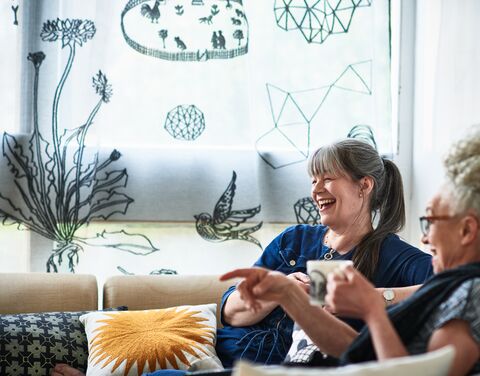
Wealth in old age: How much money you will need in retirement
Retirement is an important stage of life that brings both freedom and uncertainty. We show you what changes you can expect, how you can set money aside in good time, how much money you will need as a retiree in Switzerland, and why good budget planning is crucial.
Early financial planning is the key to a carefree retirement. If you know how your income and expenditure will develop and make provisions early on, you can avoid financial bottlenecks in your old age. Get professional advice to help you make the best decisions for your retirement provision.
How much money do you need to retire in Switzerland?
To maintain your accustomed standard of living in your old age, you generally need around 80% of your last gross income. However, pension benefits from the 1st and 2nd pillars often only cover around 60% – and this figure has tended to be smaller in recent years.
Private retirement provision is therefore becoming increasingly important: With targeted payments into pillar 3a or 3b, you can close pension gaps and cover the missing 20%. This not only secures your fixed costs, but also your quality of life after retirement.
Careful planning of your retirement is crucial. You can find out what you should consider in the various phases of your life when planning your wealth in our article on planning your retirement in Switzerland.
Poverty in old age
People who are affected by poverty in their old age often have gaps in their income, had to take on greater financial obligations while working, or generally had a lower level of income. Women, foreigners, people with a low level of education, and single, divorced, or widowed people are particularly at risk of poverty in old age. Those affected can turn to organizations such as Pro Senectute (in German) for advice and support.
How does the financial situation change with retirement?
Retirement not only changes your everyday life, but also your expenses. You will no longer have to worry about professional costs such as commuting or work clothes, but other areas may become more important. Many people use the extra time to travel more, pursue their hobbies, or enjoy more leisure activities. At the same time, spending on health and retirement provision often increases with age.
Your living situation could also play a role: You might invest in age-appropriate modifications to your home or decide to move to a smaller property.
The following income items change when you retire:
When you retire, you no longer earn income from employment. Instead, you will receive a pension from OASI and your pension fund. If you have paid into a third pillar, you will have access to the capital you have saved there, which you can either use flexibly or pay into our SmartFlex income plan to secure a predictable additional income.
The amount of the pension from the 1st and 2nd pillars depends on the number of years you made contributions and can vary depending on when you retire. You can withdraw the assets saved in the 2nd pillar either as a pension or as a lump sum. You can find out more about the difference between pension and lump-sum withdrawals in our article.
The following expenses may change upon retirement:
The following expenses will decrease:
- Your transportation costs will be lower. This is because you will no longer commute to work and you will have the option of swapping your car for discounted public transportation.
- Your rental costs can also be reduced. Depending on your family circumstances, you may no longer need the same amount of space in old age and can consider a smaller and cheaper apartment.
- In addition, you will no longer pay into pillar 3a and private savings contributions to your own bank account will also decrease. This is because when you retire, the capital or pension from your private pension is already withdrawn and you no longer need to save for old age. However, the need to save is not completely eliminated.
The following expenses will increase:
- Your healthcare costs will rise, because the older you get, the higher your healthcare costs will be. On average, they double in retirement compared to during your working life. As you get older, you may also incur additional care costs.
- Your expenses for leisure and recreation also change. Retirement offers more flexibility for travel, cultural activities, and restaurant visits. The amount of these expenses varies depending on your personal goals, dreams, and life situation.
Saving for retirement and closing gaps
With the help of Switzerland’s three-pillar system, you can ensure that 80% of your last earned income is still available after retirement.
Before you retire, regularly check whether there are any gaps in your AHV or occupational pension contributions. You can close these gaps by making additional payments into the 2nd pillar, also known as buy-ins, and thus receive higher pension benefits upon retirement.
In addition, make regular payments into the 3rd pillar. This allows you to benefit from tax deductions while you are working and provides an additional source of income when you retire.
Wealth planning in your old age
In hardly any other country in the world is life expectancy as high as in Switzerland. On average, retirement in Switzerland lasts between 21 and 24 years. This is why wealth planning also plays an important role in retirement. How much money will I need in the next five years? How much capital can I put aside? What are my needs for my estate?
Even in old age, it is worth investing money that is not immediately needed in a profitable way. However, the investment strategy should be adapted to new life circumstances, and factors such as security should be given higher priority than returns. It is best to speak to an expert to find the right strategy for you.






